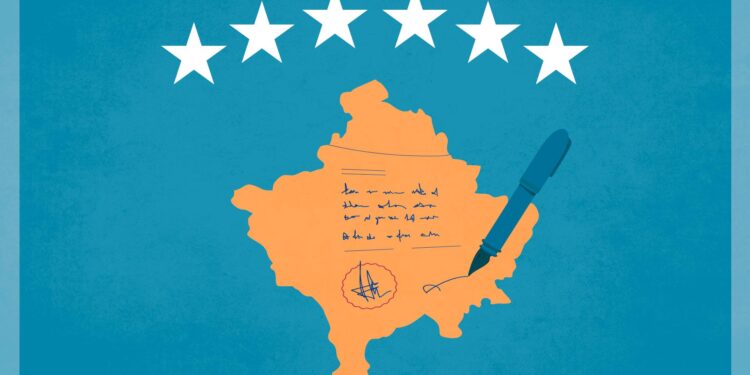Kosovo has agreed to a United States request to accept third-party deportees, a move that marks a significant development in the bilateral cooperation between the two countries. According to Reuters, the arrangement involves Kosovo taking in individuals deported from the U.S. who are not eligible to return to their countries of origin. This decision underscores Kosovo’s evolving role in international migration dynamics and raises questions about the implications for regional politics and human rights.
Kosovo Agrees to US Request for Hosting Third-Party Deportees Impact on Regional Diplomacy and Security Dynamics Evaluating Kosovo’s Preparedness and Policy Recommendations for Managing Deportee Integration
Kosovo’s decision to accept the US request to host third-party deportees marks a significant development in regional diplomacy, potentially reshaping security dynamics across the Balkans. This agreement not only emphasizes Kosovo’s strategic partnership with the United States but also signals a newfound role for the country as a key player in managing migration flows and asylum-related challenges. However, this move has elicited mixed reactions from neighboring countries concerned about the implications for cross-border security, public order, and diplomatic relations. The introduction of third-party deportees requires careful balancing of sovereignty interests with international obligations and regional stability.
To ensure a successful integration process, Kosovo’s preparedness must focus on comprehensive policy frameworks addressing social inclusion, security screening, and resource allocation. Key recommendations include:
- Enhanced vetting procedures to mitigate security risks associated with deportees.
- Robust support services encompassing housing, health care, and legal assistance.
- Community engagement initiatives to foster coexistence and prevent social friction.
- Strengthening coordination between government agencies and international partners for efficient management.
Without adequate preparation, the challenges posed by deportee integration could exacerbate social tensions and strain public resources. The table below outlines a comparative readiness assessment framework essential for policymakers:
| Preparedness Area | Current Status | Recommended Action |
|---|---|---|
| Security Screening | Developing; limited capacity | Upgrade training & technology |
| Social Services | Inadequate funding | Increase budget & partnerships |
| Legal Framework | Fragmented | Harmonize laws with international standards |
| Community Relations | Low engagement | Implement awareness campaigns |
In Conclusion
As Kosovo agrees to serve as a transit point for third-party deportees at the request of the United States, the development underscores the growing cooperation between the two countries on immigration and security matters. Observers will be closely watching how this arrangement unfolds and its implications for Kosovo’s role in regional and international migration dynamics.
















